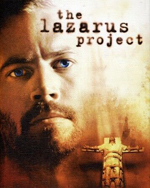In her heart-wrenching novel narrated in four distinct voices, Laura McBride looks at the humanness behind, and the significance of, our every action. And she suggests that it all really does matter.
The book’s title — We Are Called to Rise — is drawn from the quote by poet Emily Dickenson: “We never know how high we are, Till we are called to rise; And then, if we are true to plan, Our statures touch the skies.” The following two eloquent quotes capture the book’s essence.
Following the first selection, click on the black box to view the short video I prepared for my husband’s 70th birthday, using this text. He really, truly lives his life this way.







